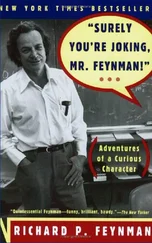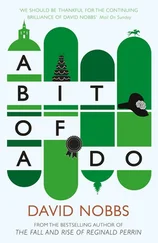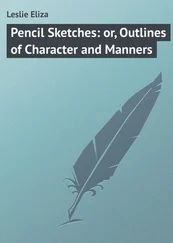Now wait. In the empty bedroom he smokes a cigarette, and I make up the bare mattress with a fresh white sheet. Wait. Now I’m standing before him taking off my clothes, covering myself with my arms.
Wait. He’s lowering me down, I’m breathing him in as he’s looming over me with his enormous eyes, like the statue of a dictator waiting to fall.
When it happens it hurts.
And then it doesn’t hurt. Pain slips away into the distance of a blizzard, and beyond all that, with eyes closed, chest cracked open, ribcage pulled apart, my heart fills up with the driving snow.
I didn’t know what to do afterwards. I lay there still as a corpse in the mortuary sheets, a vacancy of limbs, not daring to move in case it marked an end, but he was a part of me, his ugliness, his black skin. I held it all. Falling in and out of sleep with a pin drop of pain somewhere else.
He’s in the bathroom now. He’s come back with a cigarette. He’s lying next to me. He’s hard again. He puts the cigarette to my lips, holds my gaze, opens my legs, with his hand he guides himself in.

Seeming to wake from nowhere suddenly from the cold, I ask for a blanket. Instead he switches off the AC.
Little by little Delhi encroaches. You can hear it. You can see the thin sliver of sunlight on the frame of the window, fading to dusk. Slowly you make out the noise of children laughing and playing in the lane behind, pans being washed there and traffic beyond.
The bathroom has retained the day’s heat. The air is so thick in here you can swim in it. In the shower we stand and he washes me, his body behind mine, his hand on my belly where my heart beats, he brings it down, puts one hand around my neck, one inside. I move away, I sit at the side to watch him. There’s muscle around his bones, not a shred of fat on him, and there are scars across his back that I see. We go back into the room to sleep.
When I wake again it is night, the room has been filled with it, the headlights of cars shift along the fabric of the curtain, rise up the wall and are gone. The whisky bottle is half-empty. He’s not here with me.
I find him in the dark of the balcony, crouching naked, one hand against the bamboo, his head tilted, listening. He turns towards me, puts his finger to his lips.
Shhh, he says. Listen.
In the dargah of Nizamuddin the qawwalis are playing. He says, Do you hear them? Let’s go before it’s too late.

His same sense of theatre demands we wear the right clothes. He unlocks a cupboard inside, tells me to look through it, pick out something to wear. It’s full of discarded items, from family, cousins, his mother, old girlfriends maybe. His parents lived here before, left many things behind. I find a salwar-kameez, he takes out a long white kurta for himself from his own wardrobe, and in it he becomes dignified, sober, seeming older. And me, I watch myself in the mirror, covering my head with the dupatta, wrapping it around my forehead, behind my ears, around my neck, to frame my face, and I become Persian, dark-eyed, pious, transformed.
We laugh in the mirror and he holds me, touches my face, tucks my hair away.
He sits to crumble charas into a mixing bowl. I watch in fascination. Do you want to try? You’ll like it, he says. He says it comes from the mountains, a deep rich scent from Parvati Valley, he’ll take me there one day. Here, smell it. He holds it to my nose. Then I watch as he heats it, crumbles it in the bowl, burns the cigarette, adds the tobacco, mixes it reverently, rolls. Lights it, praises Shiva, takes a long drag and hands it over to me. He says to take it all the way in, down to the base of the lungs, hold it there as long as I can.

We left the apartment that night and walked along the streets, walking without touching. Through Nizamuddin in the heat to the dargah, from the smart, clipped neighbourhood into the Muslim streets, where bearded men gathered in white and goats were tethered to butchers’ shops. Left at the mosque, down the passageway, the night brighter than the day, eerie in its calligraphic pharmacy, in Urdu glowing green and gold, trimmed by the desert and the certainty of God. Men stood in their shops behind counters, beside TVs showing preachers delivering sermons, voices droning out of loudspeakers, the flutter of rose petals, a butcher’s knife.
The crowds were swirling in the narrowing alleyway, the walls closing in at the sides, canopied with cloth, drawing us down lower, almost underground, as if we were being sucked downriver to a grotto. So many bodies there that we were almost lost. He grabbed my hand to keep me close. The threshold of the dargah appeared, medieval. We crossed over.
It is said that the dargah is not only a place on earth, it is also a rupture in space and time, a portal through which the saint can enter this world.
We remove the chappals from our feet, add them to the rising pile. Bump against the mass of bodies, step on the black-and-white marble that like a riverbed has been worn down, smoothed by centuries of pilgrims’ feet, its corners like melted wax. Red petals fleck the ground, fluttering on to graves.
Inside, the river of people dissipates; it finds new currents, reaches up into the sky. Pilgrims slow down, scatter, form groups, they find corners for themselves, as if striking camp.
The eight players of the qawwali are sitting in the inner courtyard before the shrine, sitting in two banks of four, lining one side of a rectangle. Devotees and onlookers form the two long edges, thirty or forty of them now, their numbers increasing all the time. Everyone faces inwards to the centre they have made, a void and a well in the middle of the bodies in which the song is amplified. It has been going for an hour now.
The tabla and dholak inducing a trance.
The harmonium guiding the leader’s voice.
Handclaps locking the rhythm inside.
The leader is gnomic, bold and erect, his beard hangs down his chest in a point, his eyes crinkle above it in a smile. And his voice, it undulates within the scaffold of his throat, rising to a pure note with his hand held high.
Hypnotized, forgetting ourselves, we take a place at the back of one side, enclosed in the heat, standing at the back of the crowd. We crane our necks to see. At the front they are seated, swaying, hijras among them, their painted eyes rolling around their heads.
In space, beyond the sun and moon, in the depthless universe where the stars can’t be seen, there is the saint.
The music grows faster, wilder, careening towards rupture, the crowd grows so that we are pressed against one another by those around, but I can feel him, feel his body next to mine, his hand around my own. As the rhythm builds we are pushed forward until we emerge somehow at the front of the standing group. Here we remain poised on the edge.
We begin to forget ourselves, who we are, our daily lives, for half an hour we remain like this.
Then the miracle happens.
The leader in full song looks up at me, looks me in the eyes, and in the middle of his plaintive cry motions with his hand for us to sit at the front of the crowd.
The crowd parted, it did, the people smiled and moved aside, hands steadied our path, faces beamed at us, bodies rocked themselves possessed.
And now sat at the front on my heels, fists on knees in the desert heat with the hot wind of Delhi that scours our skin, with faces etched in the rhythm and bound in the love of the saint, my entire being a percussive beat, and even he who has given me this is gone.
Читать дальше













